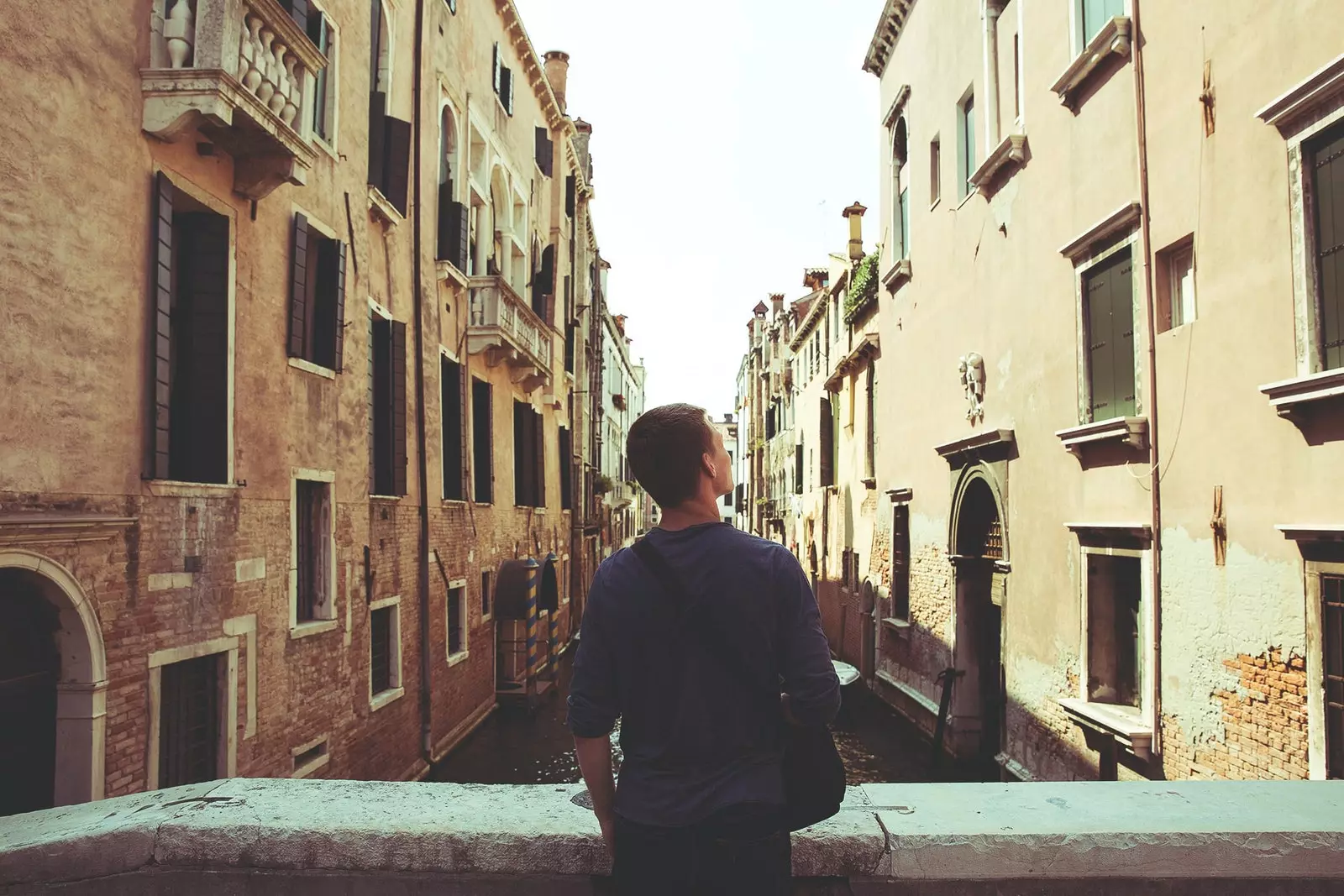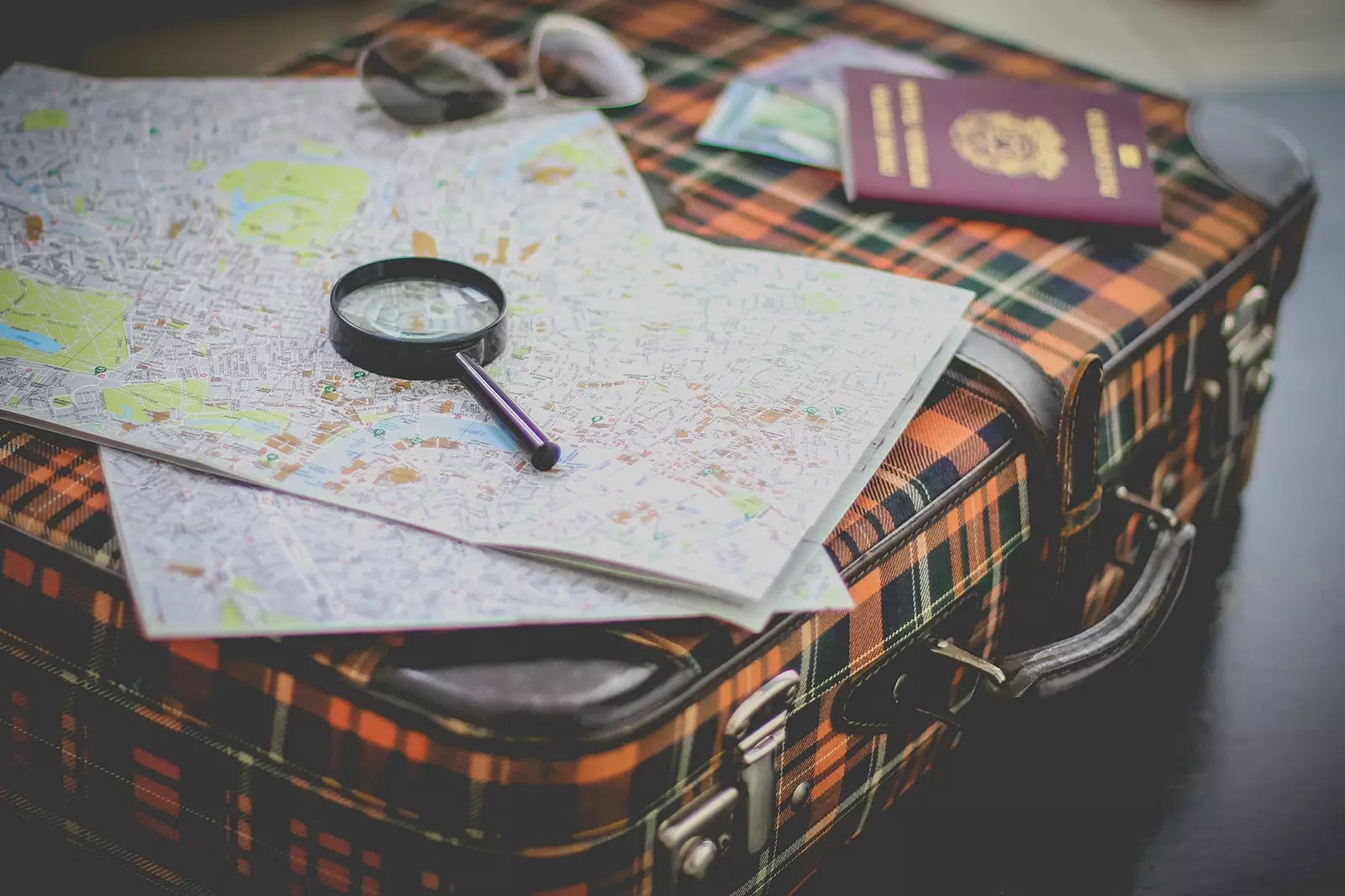
We will cross borders again
Taking into account that tourism constitutes 10% of the Gross Domestic Product (GDP) of the European Union (EU) and that summer is a crucial moment for the sector since it is between the months of June and August when the residents of the EU make about 385 million tourist trips in which they spend about 190,000 million euros, The European Commission has already published a guide with recommendations to resume travel safely as soon as the health situation allows it.
These measures go through progressively lift the restrictions imposed on the free movement of people, for allowing tourist companies to reopen their facilities while respecting sanitary precautions and for giving back to the population the ability, confidence and security to travel again.

The European Commission proposes a phased de-escalation
And the fact is that, with these guidelines, the Commission wants citizens to be able to enjoy that time of rest, relaxation and fresh air that they so much need and that they can reconnect with friends and family, either in your country or abroad, always with the guarantee that all necessary security measures will have been taken.
WHEN CAN WE START TRAVELING?
There is no date on the horizon since the steps that can be taken to allow freedom of movement will depend mainly on the evolution of the pandemic.
Thus, in the document Towards a coordinated and phased approach to restore freedom of movement and abolish internal border controls, the European Commission provides member states with a series of recommendations (an important nuance of recommendation, not obligation) aimed at that staggered opening and, in a second moment, also end restrictions on non-essential travel to the European Union, where we would already start talking about the freedom of movement on its external borders.
WHAT WOULD THESE PHASES BE?
Phase 0: we are in it, with the internal and external borders of the EU closed and with unnecessary travel suspended.

Maintaining social distance will be essential in each of the phases
Phase 1: aspires to restore the freedom of movement with a partial removal of restrictions and controls at internal borders. For this to occur, they point out that one of the determining epidemiological factors to take into account is that a sufficiently low level of transmission of Covid-19 is reached.
In the event that this is not immediately feasible, they point to the possibility that travel restrictions and border controls are lifted by regions, areas or member states that show a sufficiently similar positive epidemiological evolution, without neglecting the protection and control measures that must continue to be applied. Geographical proximity will not be taken into account as much as the fact that they are in a comparable epidemiological situation and that they have implemented the health recommendations in a similar way.
It is here that the European Commission refers to the non-discrimination principle and insists on the importance of respecting it. What this principle comes to say is that if a state eliminates movement restrictions, both to its territory and from its territory (or from or to areas of its territory), this It will be applicable to all residents of that member state (regardless of their nationality) and to all EU citizens who are in the same epidemiological situation.
This phase would also be the moment of facilitate travel for professional and personal reasons.

Freedom of movement will depend mainly on the evolution of the pandemic
Phase 2: the one in which restrictions and controls on internal borders would be lifted in general. This stage would occur when one could speak of a positive and similar epidemiological evolution in the EU and always maintaining the necessary personal hygiene measures and physical distance, as well as information campaigns. It will also be necessary to take into account the security requirements in the means of transport and accommodation.
The European Commission stresses the need to implement these phases in a coordinated and flexible way , opening the possibility to take steps back or, on the contrary, to accelerate measures if the situation allows it. In addition, it emphasizes that the times that are handled will be conditioned by the commitment shown by citizens with social distance measures.
BASED ON WHAT WILL PASS FROM ONE PHASE TO ANOTHER?
At this point, the European Commission makes it clear that its role is to support and coordinate the preparation of these decisions, but that it is member states who are responsible for assessing the situation and making decisions. And for this, it does provide a series of criteria to be taken into account at the national level:
- the epidemiological criteria, highlighting, once again, the possibility of lifting restrictions between areas that present a comparable situation based on the data collected by the European Center for Disease Prevention and Control (ECDC); and in those places where there is enough means (hospitals, tests, surveillance systems and contact tracing). This would ensure that actions are carried out in a coordinated manner and without discrimination. In addition, the ECDC and the member states have developed a map that is kept up to date with the situation of the transmission of Covid-19 in the EU.
- containment measures, which implies guaranteeing physical distance during the trip, from origin to destination, including border controls. Where it is not possible to guarantee this safety distance, it will be necessary to implement additional measures that allow the same level of protection.
In addition, the states will have to develop strategies to reduce the risk of transmission of the virus, being especially important tests and the possibility of increasing the capacity to do them, contact tracing and the application of isolation and quarantine if suspected cases of Covid-19 are detected. States should also consider testing travelers returning from trips for possible outbreaks of the virus.
- social and economic considerations. Always bearing in mind the need to protect public health, the European Commission stresses that restrictions must be effective and proportionate and never extend beyond what is necessary to pave the way for a recovery in economic activity and the reunion of families that have been separated by this situation.

The authorities trust that the summer season will not be lost
Hence, the Commission indicates that the generalized restrictions are being replaced by more specific measures that are complemented by the physical safety distance, with the performance of tests and with the follow-up of suspected cases.
For its part, the ECDC, after assessing risks, has concluded that “Lifting the measures too quickly or without coordination, without the necessary monitoring and health system capabilities, could cause outbreaks.”
TOURIST TRAVEL
The European Commission, in its Guide for the progressive resumption of tourist services and protocols for accommodation, states that “until a vaccine is available, it has to be found a balance between the needs and benefits of travel and the risks of a rebound in cases that requires the reintroduction of containment measures.”
In this sense, as far as resuming tourist activities is concerned, the criteria indicated above (sufficient capacity of the health system for both locals and tourists; monitoring capacity to avoid outbreaks, always respecting the EU data protection law ; access to tests for the rapid detection of cases and their isolation; tracing of contacts to reduce transmission and the possibility of sharing relevant information between countries where there is international tourism) is added that of coordinated and effective communication, not only between the authorities and key players in the sector, but also between national and regional governments and other member states.
The European Commission also points out the importance of travelers and tourists are also informed about the local context, the measures to follow in case of being susceptible to being infected by Covid-19, how to access the health system...

Until that moment arrives, we will be packing our bags
